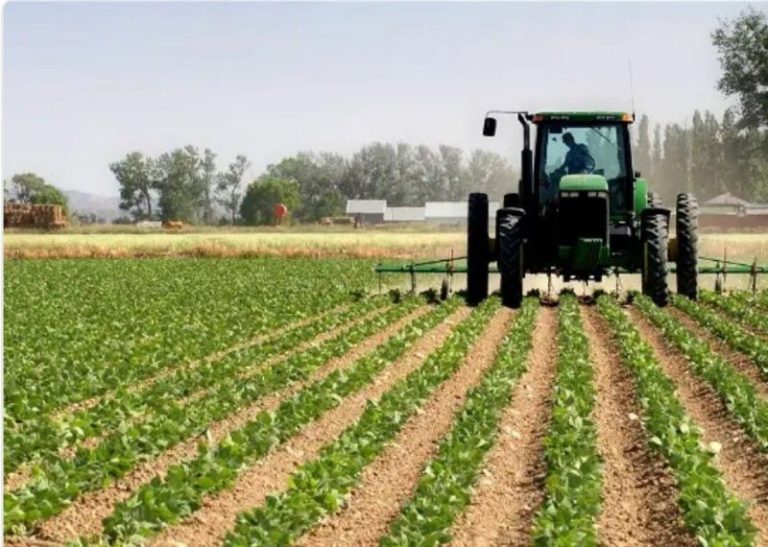By Yusuf Adua
As we match towards 2024 and beyond with political baggage, uncertainties, and a frustrating national economy, it appears that the only goldmine every Nigerian should be considering and preparing themselves for is the diversion of their interests to agriculture. This is the reason why the Nigerian government should create an environment conducive for commercial agriculture.
Even in 2023, when the country had not become this palpable, the food and agricultural economy ranked highly among the country’s most lucrative economic sectors.
That is not all; the present existentialities that will make farming our go-to business will be highlighted in this piece.
Money can’t buy anything today
More than ever, the Nigerian currency has lost its value to such extent that only those who buy less from the market hold their own. Now, food items have no stable price, and, more depressingly, they are not going down but skyrocketing.
Therefore, instead of being buyers, it is logically reasonable to become sellers. In fact, preparing to venture into agriculture from 2024, is the perfect way that will lead Nigeria to a productive father than a comsumptive nation. This is where the need for Nigerian government to create an environment conducive for commercial agriculture, comes.
We have a few holes to fill
Despite the Buhari administration’s efforts to diversify the nation’s economy from oil to agriculture, thereby boosting its food security, so much was left undone. Nigeria’s agricultural policy has remained farmer-unfriendly in so many ways. Farmers’ access to farm inputs has remained in the hands of political farmers. Additionally, farm inputs are made available to farmers when the rainy season of half gone. Access to finance has remained a mirage for farmwrs. On their own without finance, our smallholder farmers cannot afford to buy the required inputs for the number of hectares they cultivate. The country’s abidance by protocols, especially the Maputo Declaration is nil. The Declaration seeks African nations to allocate a paltry 10 percent of their annual budget to agriculture. Nigerian leaders have never found this imperative even in the face of the economic diversification to agriculture. There are many more holes to talk about.
Although the Nigerian government has initiated several programmes and policies aimed at revitalising the agricultural sector, these need to be remodelled to ensure that real and not political farmers benefit. Schemes such as the Anchor Borrowers’ Programme and the Green Imperative were aimed at providing financial incentives, technical support, and infrastructure development to farmers. This cannot be said to have been achieved.
Relying on the premised indices that 80 percent of the Nigerian population are farmers, food security is when this percentage can feed the nation. Conversely, food insecurity is when we have to buy what we eat from across our borders. But how can we feed ourselves from what we produce? It is quite simple: first, by the government providing the environment conducive for smallholder farmers to produce food; the second is by empowering this set of farmers to be able to engage in farming and other related activities beginning from 2024. This will not only strengthen our households but also contribute to reducing the country’s dependence on food imports, thus strengthening food security.
Not only that, mass food production has become necessary because Nigeria’s urban population is on the rise. The result is from rural-urban migration, especially by the youth. The implication is that those who should replace the ageing farmers are migrating to the cities because farming is not enticing them. This creates serious problem because while we are recording less farmers, our ‘not-farming’ population is growing. If government makes farming enticing, many youth won’t leave their villages to the cities. Let’s try it.
We have the wherewithals
Population is a valuable asset to agriculture. So, if Nigeria is not the giant of Africa by its economic standing, it is the most populous country on the continent. Therefore, a productive farming population is an asset to any nation. The second is arable land, the type that other nations lack. Putting our women and youth population into the the nation’s agricultural value chain will not only tackle food insecurity but also end unemployment.
Science and tech can help us
With Nigeria’s adoption of biosciences for agriculture, the country from 2024, should breed more technologically versed scientists across all fields at a time when traditional mode of farming is more pronounced.
Agricultural biotechnology, and other forms of modern farming methods are being accompanied by digital tools, and data-driven insights that have the potential to revolutionise farming practice in the country. Embracing these technologies will not only enhance food productivity but also reduce waste and improve overall efficiency.
And the climate is favourable
Though the effects of climate change pose a significant challenge to agriculture, individuals and corporations are beginning to propagate innovative farming practices, crop diversification, and sustainable agriculture techniques in order to mitigate its effects. The banker’s bet is for every Nigerian to make judicious use of the opportunity.
Ask, and you shall be given finance
Like Brazil, which provides finance for smallholder farmers, and markets for up-take of their farm produce, Nigeria should also provide unfettered finance from 2024 and beyond.


